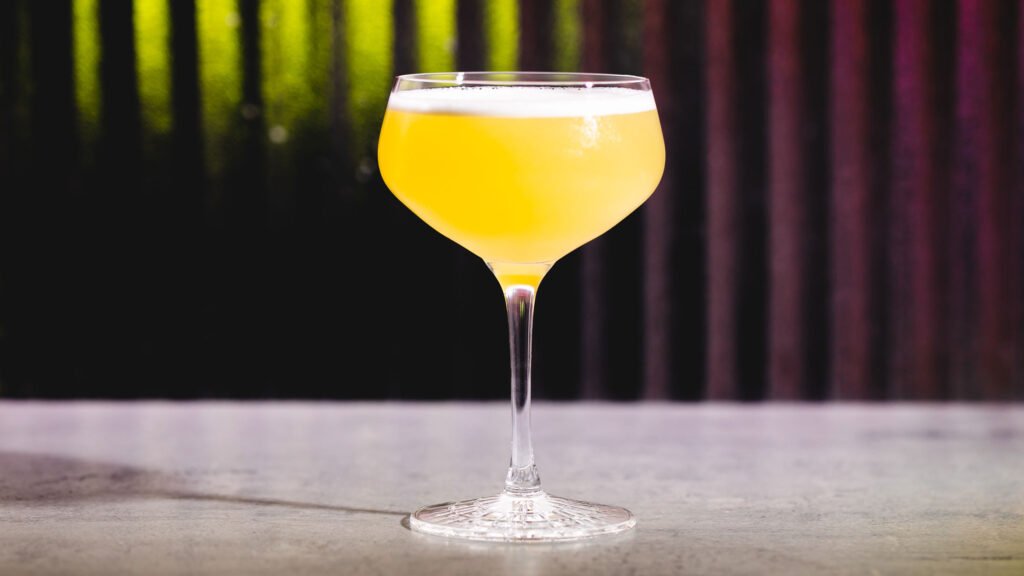[ad_1]
The Finest New Bartenders of 2025 are certain by a shared perception that sustainability goes past making cocktails.
And whereas hyperlocal, hyperseasonal and low-waste efforts drive their drink-making, the category of 2025 takes a broader view of the time period, understanding that sustainability—of land, substances, their friends, companies—is all interconnected.
This yr, Punch is partnering with Astral Tequila, who brings shared values of sustainability, resourceful upcycling and social duty to the forefront of the Finest New Bartenders initiative. For the ten bartenders featured under, sustainability isn’t just a buzzword, however the one path ahead to make sure a shiny future for themselves and their chosen {industry}.
We requested the folks shaping the way forward for the {industry} what sustainability seems to be like, on the bar and past. Right here’s what they needed to say.
“It’s so cool to be working at Daisies, which has a Michelin Inexperienced Star, and is the one restaurant in Chicago to have that. Our bar program makes use of plenty of kitchen scraps. The citrus we have now behind the bar is citrates, like superjuice. We make a degree to not have any substances that aren’t native or seasonal. We don’t have cranberry, pineapple or coconut. What meaning is doing plenty of fermentation, plenty of acid-adjusting, and utilizing different acids like vinegars to make up that acidity for a balanced cocktail.”
—Becca Petersen, bartender, Daisies, Chicago
“True Laurel is thought for its vibrant, technically complicated drinks, and [I take pride in] with the ability to lead a bar program that prioritizes environmental duty with out compromising on creativity. This method not solely displays my dedication to a no-waste philosophy but in addition helps native agriculture and reduces total meals waste, with common foraging integrating the pure flora of the San Francisco Bay Space into the menu.”
—Tone Arasa, bartender and prep lead, True Laurel, San Francisco
“I’ve at all times tried to keep away from utilizing spirits made by worldwide conglomerates that don’t have any look after the land and cultures that they use. Since working at Firstborn, seasonality and locality have been [at the] forefront of my focus and research.”
—Kenzo Han, bar director, Firstborn, Los Angeles
“We companion with a compost firm in New Jersey that works with a few farms. After spending over 10 years working in eating places, I do know there’s a lot stuff thrown away continually. Something that helps an ingredient tackle a second life is one thing I’m proud to participate in.”
—Ricardo Rodriguez, bar supervisor at Lita and La Otra, Aberdeen Township, New Jersey
“I volunteer for a corporation of bartenders towards starvation, which helps present meals for the unhoused and hungry, and No Child Hungry, one other program that helps youngsters on the road. That is our neighborhood, and the bar is a hub for neighborhood connections; we have now the ability to make variations.”
—Lou Bernard, beverage director, Mita, Washington, D.C.
“I’m sharing this on June 11, 2025, from Los Angeles, so taking good care of all my coworkers and neighbors and ensuring they’ve the assets to defend themselves legally, and might all get to and from work safely and never have to fret about being kidnapped from the restaurant has been the No. 1 precedence of my workforce and my neighborhood.”
—Han
“We host Queer Night time each Thursday on the bar. It was began by my good friend and coworker Al Culliton, and so they’ve since handed the torch on to me. It’s turn out to be my favourite evening of the week to work. We be sure that to incorporate drinks on there which might be at a extra reasonably priced value level than our common menu costs, and at all times have a number of nonalcoholic choices as effectively for many who don’t need to partake in that manner. It’s all about being in neighborhood, so we would like as many individuals to indicate up as attainable.”
—Molly Gajdosik, assistant supervisor, Gigantic, Easthampton, Massachusetts
“I’ve ancestral ties to the California coast, being from the Coastal Miwok tribe of Graton Rancheria. Being Indigenous, I’ve a powerful social and environmental obligation to the land I inhabit. I’m at the moment and actively donating to the Sogorea Te’ Land Belief, an city land belief led by Indigenous girls. This land belief impressed me to proceed my volunteer work on native farms to develop an understanding of native vegetation in our space. I’m additionally working with different Indigenous {industry} professionals to create our personal {industry} nonprofit that brings Indigenous and Latinx {industry} employees collectively to share experiences, tales, tradition and work alternatives. Being a bartender helps me keep related to my very own Indigenous neighborhood and perceive the significance of sustaining neighborhood inside our {industry}.”
—Arasa
“I take nice duty in searching for the workers I oversee. I can’t title a better social duty than taking good care of folks.”
—Daniel Bareswilt, bar lead, Alter Ego, Tampa, Florida
“I’d like to see a concentrate on sustainability that goes past substances. This {industry} runs on folks, so how we deal with them is vital to the general sustainability of the {industry}. Sourcing responsibly and decreasing waste is so vital, however so is honest pay and work-life steadiness—we have to take note of each environmental and human sustainability.”
—Gajdosik
“I need folks to place their toes down and say, That is what our firm believes in, and never be so afraid of the capitalistic penalties.”
—Kelly
“I believe the gradual change to a service-charge mannequin has been actually cool. Although some variations of that work higher than others, the emphasis on offering advantages to service-industry staff is one thing I need to see proceed.”
—Petersen
“I need to see actual structural funding within the well being and the well-being of the hospitality employees, beginning with entry to healthcare. For me, it’s unacceptable that on this {industry}, so many individuals nonetheless work with out primary advantages like insurance coverage, paid sick go away or psychological well being help. We discuss rather a lot about hospitality, however we not often prolong it to the folks doing the work. That additionally means setting requirements round cheap hours, protections towards harassment, and creating safer, extra inclusive workplaces throughout the board. On the sustainability aspect, I’d like to see a shift away from sort of performative greenwashing into extra accountability round sourcing, waste and labor.”
—Capucine Prager, bartender, Bar Goto, New York
“I want we may push for much less meals waste and recycle what we have now. A lot results in landfills. Some eating places are performing some composting … however we will at all times do extra. Take a 3rd have a look at your herbs and fruits; juice it and freeze it. It takes a lot vitality and water and area to develop every little thing we’re rising.”
—Mel Tate, lead bartender, Dovetail, New Orleans
“An organization I love is ecoSPIRITS, [which is working] to eliminate single-use glass within the spirits {industry}. It’s one of many greatest wastes—you order a case from the distributor, it is available in a cardboard field … and we recycle it and hope it will get recycled correctly. The carbon footprint of attempting to recycle could be very taxing, which exacerbates the problem. This firm is the world’s first low-carbon, low-waste wine and spirits distribution system. It began in Hong Kong and is in Asia and Australia … however the legal guidelines are robust round liquor and refilling bottles in the USA. However plenty of these legal guidelines are outdated and foolish, and this initiative is a no brainer. I’d wish to see it extra generally used sooner or later.”
—Rodriguez
[ad_2]


